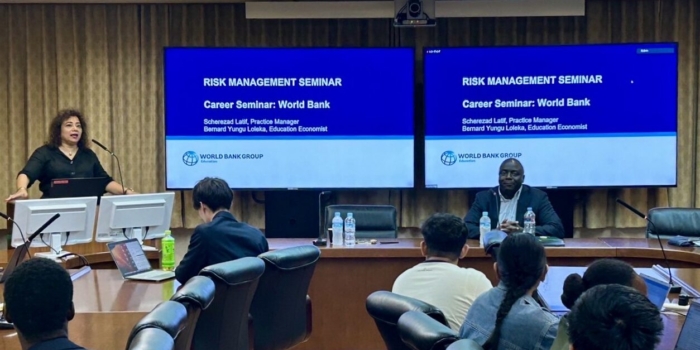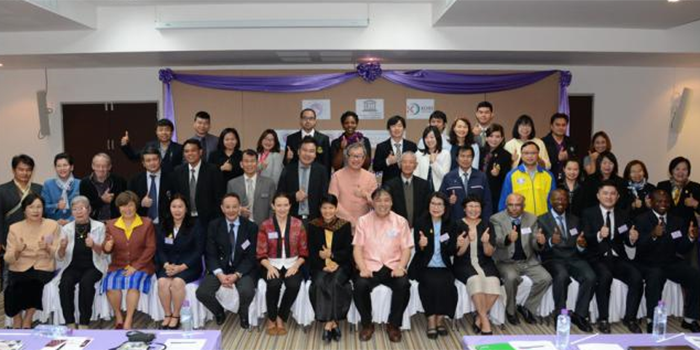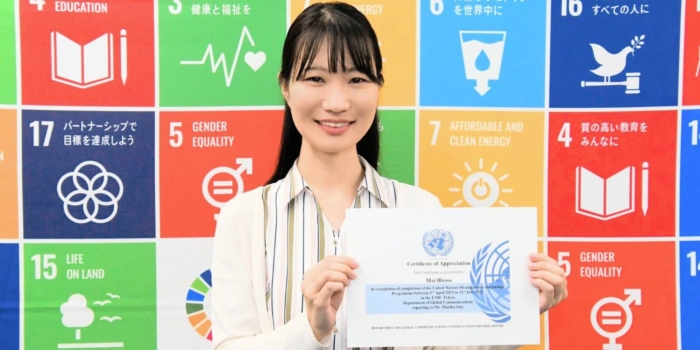Education is the basic social welfare and the foundation of development for every one. But how much did we realize its importance? This field study in U.S. really open my horizon and make me think deeply about education and even farther, about the whole human development.
According to the Secretary-General of UN Ban Ki-moon said on the World Economic Forum in Davos (2013), education has the power to transform lives, give people hope, confidence and dignity, and equip them with knowledge and skills to escape poverty; to sustain future development. He said he believes that education should be a top priority of the global political and development agendas, and that is not an option, but rather an imperative. (http://blogs.worldbank.org/education/the-global-education-imperative).
These above points also were what been mentioned a lot during the Comparative and International Education Society (CIES) 2013 conference at New Orleans which I attended in this field study. In the CIES president address, in the sessions, in the every presentations and discusses I listened, there is one obvious essence in both the academic and practice education field that education is for all and the early the better. Every person-child, youth and adult- shall be able to get access to education and benefit from educational opportunities designed to meet their basic learning needs. These needs comprise both essential learning tools (such as literacy, oral expression, numeracy, and problem solving) and the basic learning content (such as knowledge, skills, values, and attitudes) required by human beings to be able to survive, to develop their full capacities, to live and work in dignity, to participate fully in development, to improve the quality of their lives, to make informed decisions, and to continue learning. (www.ecdgroup.com/download/cn114awi.pdf)
All the qualitative/quantitative researches and field works about education at CIES, World Bank, Inter-American Bank and GWU come from this original mindset and then go on to find the better way to improve the access, quality and cost-effectiveness etc. in the implement of education. Based on all these, policy makers, researchers and teachers work on the forefront care about the tools, environment, opportunities and outcome etc. They use statistical and theoretical analysis to attain the improvement of methodology on the process and evaluation of education in all over the world, especially in the developing countries.
In the session of “the Millennium Development Goals” at CIES, professors from EU, Asia, Africa and U.S. all talk about the education for next generation and sustainability of human development. Also during our visit to the international organizations like World Bank and FHI 360 and in the class we attend at GWU, the linkage between education and human development is the main concern. “Sustainability”, that is the word I picked up and caught my most attention in the whole experience of this field study.
Base on my pervious background and this field study, I found out one not many people following but very interesting topic of the relationship between education and human development – education for sustainable development (ESD), specifically, “education and environment issues”.
There have some reports on the World Bank website shows the evidence has been found that the environment disaster caused by climate change had impacts on children’s drop outs from school in East Asia-Pacific region and other coastal countries. ( http://blogs.worldbank.org/education/node/569)
On the other hand, education plays a very key role in ensuring people obtain the skills to reduce the risk when facing the environment deterioration. At the same time, new technologies and emerging industries demand for skilled workers who understand the concept of sustainable development, as well as technical knowledge about green ways of working. This also rise huge opportunities for technical vocation and educational training (TVET). There have many UN institutions such as UNESCO and UNEVOC have already conduct program like “Education for Sustainable Development (ESD)” and “Greening TVET for sustainable development” etc. (http://www.unevoc.unesco.org/go.php?q=more_about_tvet_for_sd&context)
At the first day at Washington DC, I also attended one important senior meeting at JICA American Office. The Theme is about the evaluation of Japanese ODA. Some experts on CIES also mentioned that Japan actually really care about education for sustainable development. Can these facts raise any farther partnerships cooperation on global level education for sustainable development?
The purpose and strategy of education can been set more macro and sustainable for human development.
All of all, I have to say that I feel so luck to join the Campus Asia program and had this wonderful field study with Ogawa sensei and his seminar students in U.S..
A true lifetime-remember experience!
Related





